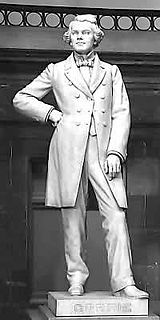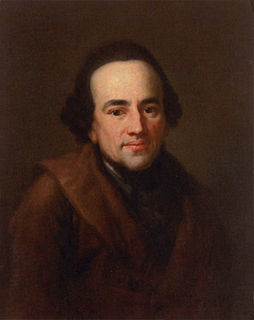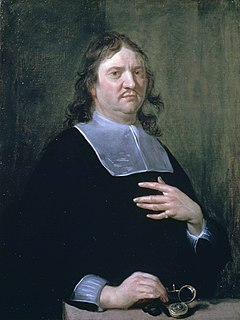A Quote by Francis Bacon
Let every student of nature take this as his rule, that whatever the mind seizes upon with particular satisfaction is to be held in suspicion.
Related Quotes
A society that robs an individual of the product of his effort, or enslaves him, or attempts to limit the freedom of his mind, or compels him to act against his own rational judgment-a society that sets up a conflict between its edicts and the requirements of man’s nature—is not, strictly speaking, a society, but a mob held together by institutionalized gang-rule.
We re-make nature by the act of discovery, in the poem or in the theorem. And the great poem and the deep theorem are new to every reader, and yet are his own experiences, because he himself re-creates them. They are the marks of unity in variety; and in the instant when the mind seizes this for itself, in art or in science, the heart misses a beat.
Our assent to the hypothesis implies that it is held to be true of all particular instances. That these cases belong to past or to future times, that they have or have not already occurred, makes no difference in the applicability of the rule to them. Because the rule prevails, it includes all cases.
No one is without Christianity, if we agree on what we mean by that word. It is every individual's individual code of behavior by means of which he makes himself a better human being than his nature wants to be, if he followed his nature only. Whatever its symbol - cross or crescent or whatever - that symbol is man's reminder of his duty inside the human race.
We consider the beauty of nature and art with pleasure and satisfaction, without the slightest movement of desire. Instead, it appears to be a particular mark of beauty that it is considered with tranquil satisfaction; that it pleases if we also do not possess it and we are still far removed from demanding to possess it
my advice to every student who is trying to make a decision for the years immediately after graduation: take the opportunity that in your mind is the most rewarding, that you are most passionate about and that you find most interesting and save the rest of your life for being risk averse. Whatever you want to do, this is the time to pursue it. Twenty years from now, your freedom to take risks will be limited.
The King saw them with no common satisfaction, expressing his desire in no particular to have yt Stellar fish engraven and printed. We wish very much, Sir, yt you could procure for us a particular description of yesd Fish, viz. whether it be common there; what is observable in it when alive; what colour it then hath; what kind of motion in the water; what use it maketh of all that curious workmanship, wch Nature hath adorn'd it with?
The story man must see clearly in his own mind how every piece of business will be put over. He should feel every expression, every reaction. He get far enough from his story to take a second look at it... to see whether there is any dead phase... to see whether the personalities are going to be interesting and appealing to the audience. He should also try to see that the things that his characters are doing are of an interesting nature.










































